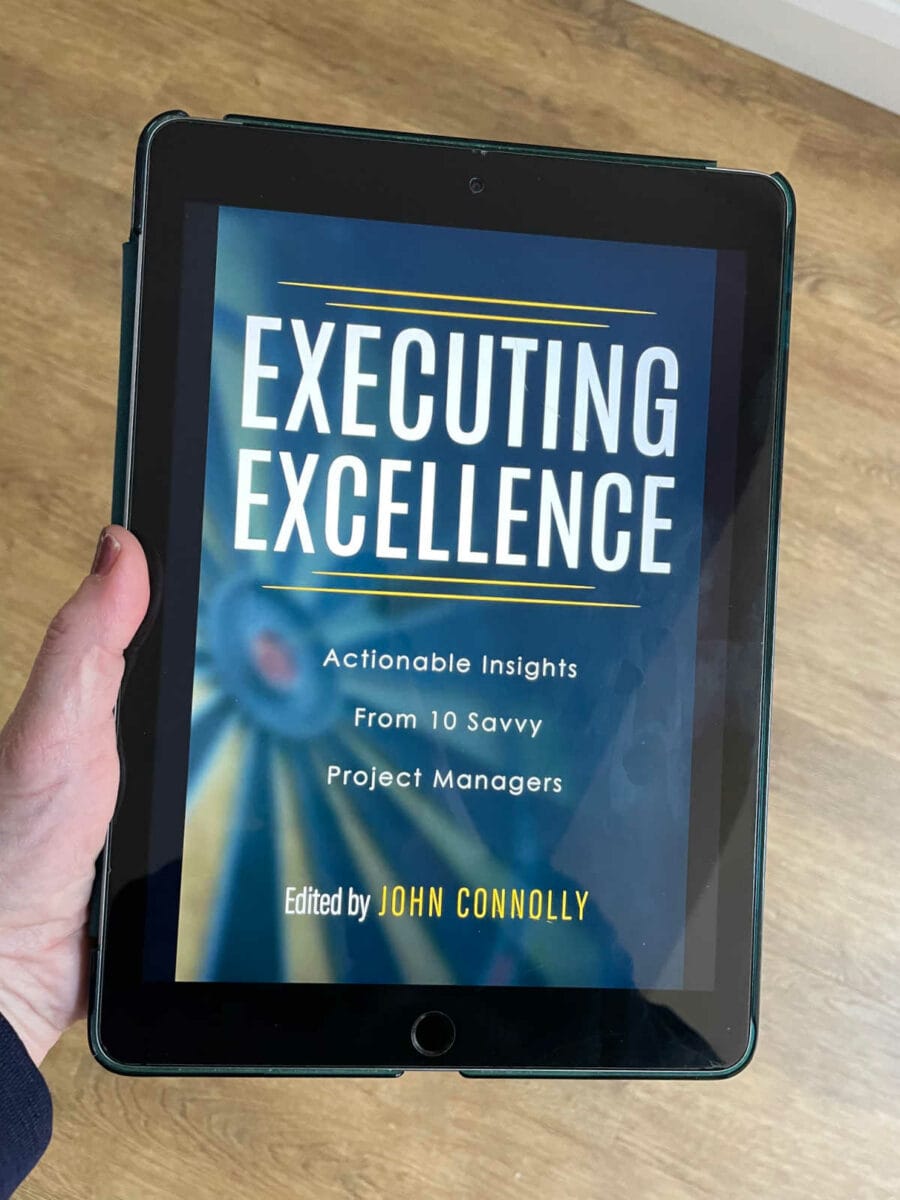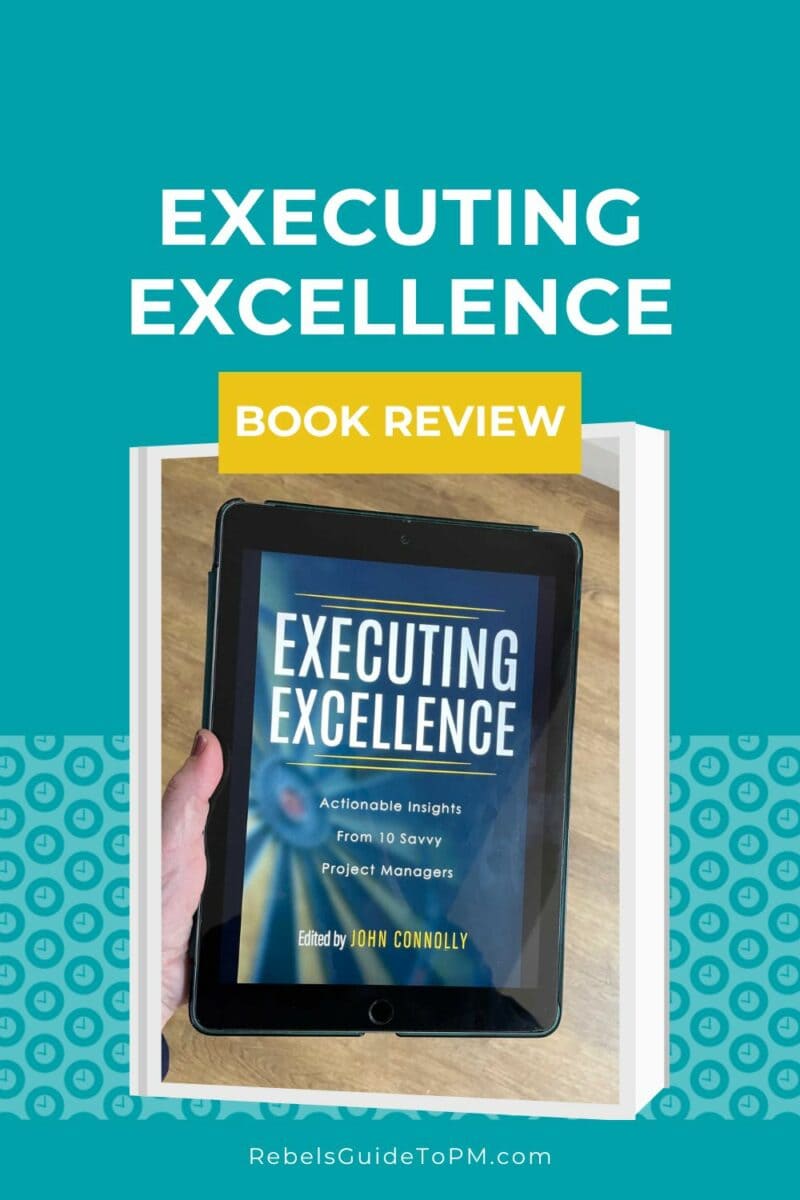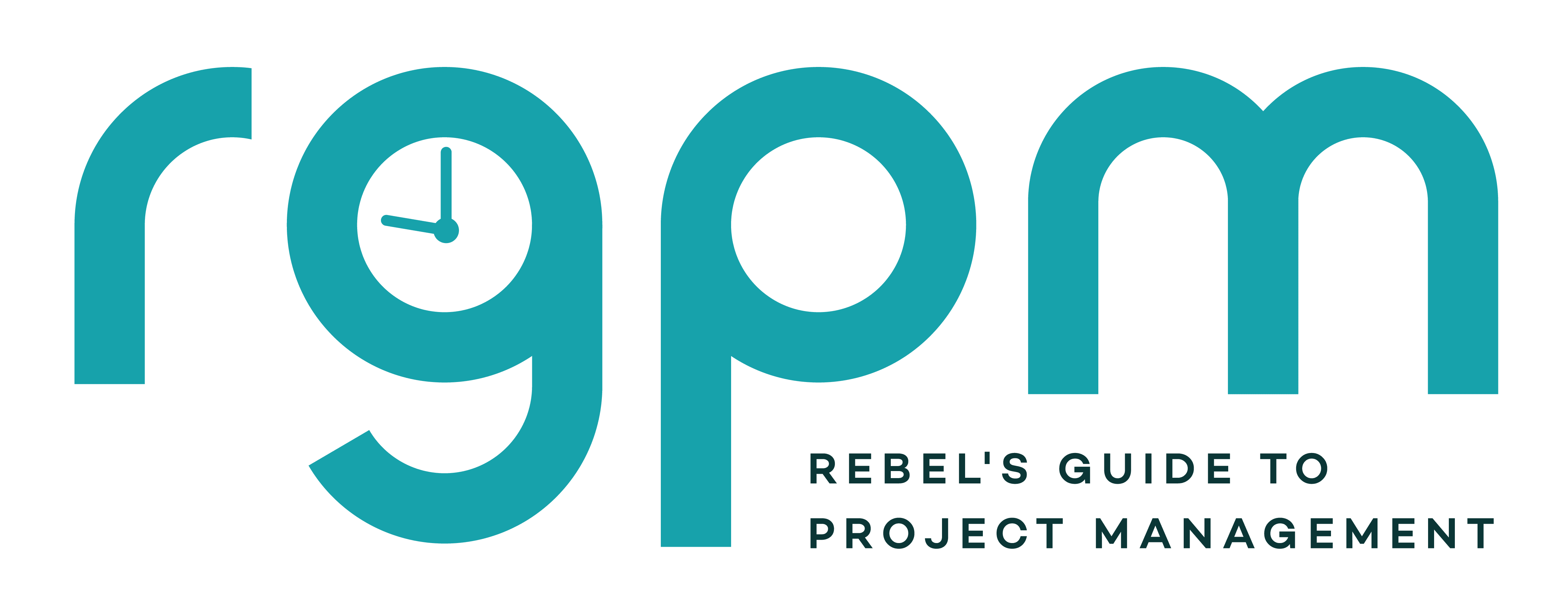Executing Excellence (Book Review)
This blog is reader-supported. When you purchase something through an affiliate link on this site, I may earn some coffee money. Thanks! Learn more.
Executing Excellence: Actionable Insights from 10 Savvy Project Managers is a collection of essays from experienced project managers – names you might know from their presence on LinkedIn and around the web.
The book, edited by John Connolly, has been put together as part of an effort to share and retain knowledge in the sector. It’s part lessons learned, part tips.
I confess I picked it up because I was keen to read Adrian Dooley’s chapter. His is the first in the book, and I have a lot of time for his pragmatic, experienced take on project delivery. In particular, I agree with his views that so much of project management is a continuum. I wasn’t disappointed, his was a well-structured and thoughtful essay.
The book covers wide-ranging content from succeeding as a freelancer (which I thought was full of good tips for in-house project managers too) to tips for learning the technical language in a new industry.
We learn from stories and each chapter contains the unique experience of the author. It’s considered and easy to read at just under 200 pages. It took me a couple of hours to read on a lazy Saturday.
I was a bit worried that it would read like a random collection of Medium articles or LinkedIn posts, but it didn’t have that feel to it. The chapters felt like their authors had thoughtfully put together the content in a structured way.

However, there didn’t seem to be much structure to the way the chapters were ordered, with the exception of two chapters that referenced EQ being together. I think it would have benefited from being split into sections or topics so that people at different parts of their career could find what they need.
For example, Joseph Jordan’s essay was very much aimed at beginners and new entrants to the profession. The chapter on project communications that appears later in the book is the same, with some very basic guidance on how to write an email. (That essay uses the acronym BLUF but does not explain it – I had to look it up. It’s an army term that means Bottom Line Up Front i.e. lead with the point, which is a good principle for executive summaries.)
Dr Max Boller’s essay on stress and authority is something that experienced project managers wouldn’t want to skip over. So as a reader, you’re jumping from different levels of topics as you move between essays, with not much guidance as to which ones are the best fit for you.
I suppose you could argue that it’s useful for experienced project managers to refresh themselves on the basics.
Tareka Wheeler’s chapter introduced me to the concept of value-based performance, which was great. I took away a lot to think about and put into practice from that, not least a challenge to reflect on of how I am performing in my current role.
The book is very PMI/PMP focused, with Adrians Dooley’s nod to Praxis providing a bit of balance.
Overall, the essays are well-written and thought-provoking and make an interesting collection together. Wherever you are in your career, you’ll find some takeaways.

